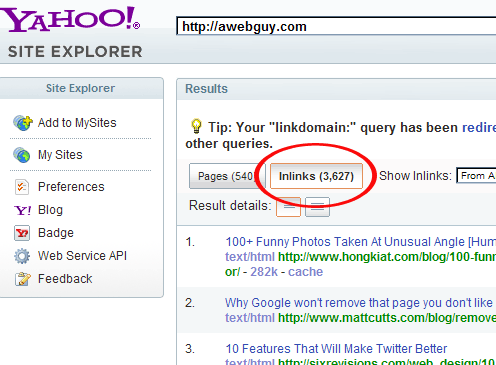
I have been in the business of SEO (search engine optimization) for over a decade, and it has provided me a very handsome living in that time. I fell in love with the SEO field with the excitement of having nearly anything I ever really wanted listed at the top of search engines reach the top, and remain there. I still do that, today … every day.
In the time I have been in the SEO industry, I have accumulated so many stories of winning that it is no wonder it feels like a bad drug habit, and I am addicted. Through the 2000’s, SEO was the basis of my means to sell millions of dollars in Internet access and web hosting services to over 2000 Internet access providers and web hosts. I rocked that market and earned squillions as the CEO of a wholesale Internet services company. SEO was really fun, indeed!
Adding to all the fun and games, I have enjoyed things like a relatively small client crediting me for increasing their new home sales by over $82 million in the first year they were my client. That is like an intravenous drug to me, and hearing how many jobs it created for that somewhat small organization means that I have done something meaningful.
I have a lot of stories like these, which keep me going and keep me seeking that next “drug” high.
When SEO Became the Worst Job
I have really had a blast performing my work for clients over the years, and I still love performing the work. However, it was a lot more fun back before every con artist jumped in and said they could do the same thing for pennies, and then cheat customers out of their money. Liars and cheats have made a mockery of the SEO industry, and given people reasons to doubt the truth.
Of course, a good SEO can see right through the lies, but many business customers cannot tell the difference between good SEO and bad SEO. Although I have tried to warn many people, lies about SEO have lead a lot of people by the nose (and the wallet).
For much of my career in search engine optimization, I have worked as the man behind the curtain, as a sub-contractor for other firms. That is largely because I have often felt, and said that “business is great if not for all of these damn customers.” What I mean by that phrase is that in a field where I am quite deeply engrossed and knowledgeable, it can be very challenging to bring SEO down to a level that people will relate to and understand. I am simply not a good person to ask if it is helpful to be listed in the top of search listings when somebody searches for something in your industry. I am a really bad guy to ask whether marketing is a commodity and if everybody can do it just the same.
I have written my thoughts of dealing with prospective clients who do not understand, nor wish to understand, what it takes to develop really effective SEO and social media marketing. I believe I said it well in an article titled “When I Go to Hell, They Will Have Me Selling SEO“.
SEO is Like a Drug Habit, and I May Relapse
Although I may have a relapse from time to time, I have finally decided to set a course to end my services for hire by mid-2011, in order to focus on other endeavors. As I have indicated, SEO is like an addiction to me, so I know that if I do not actually say it in public, right here on my blog, I will probably never quit it.
The fact remains that the field of performing SEO for clients has lost much of the joy. I am tired of having people return to me for cleaning up the messes of another SEO after they decided to go with the cheap guy with a pocket full of fairy dust. More than that, I am tired of defending the truth while realizing that the truth is not what people really want.
For the past couple years, I have sought to gain retail clients to work with directly. I decided to take on a small group of clients who understand what it really means to build success. The ignorance (don’t know), apathy (don’t care to know), and dishonesty (will lie about it) that I have witnessed in the last couple years have caused me to lose much faith in the SEO industry and in the popular business mindset of the day.
Unfortunately, I find that far too many business people are not interested in creating real success when they can settle for just getting by. As a web guy who really does care about delivering results for a client, I have decided that the ignorance, apathy, and dishonesty of the SEO industry, and much of the SEO shopping public are not worthwhile to me.
I am tired of explaining the difference between doing something, and doing something well. Being able to prove results and giving factual proven data, but then having people too indifferent or scared to take the best actions for their own benefit drags me down and quite honestly makes me very sad. I see the actions of the large number of businesses who reach out to me as a microcosm of what is wrong with our business world and our economy today.
There are still a lot of myths to bust and lessons to teach, so I intend to continue blogging on topics of the SEO and social media marketing industry, for now. Besides, I still plan to perform search engine optimization.
Maybe once I officially do not take clients, people will have more trust when I say that the majority of what you hear about SEO and social media marketing is bullshit. It actually does require work, and it actually does require marketing talent to build success.
Your comments and/or well wishes are welcome here. If you can relate to this, I would love to hear your stories! If you would rather throw tomatoes at me, that is just fine as well.
Podcast: Play in new window | Download





